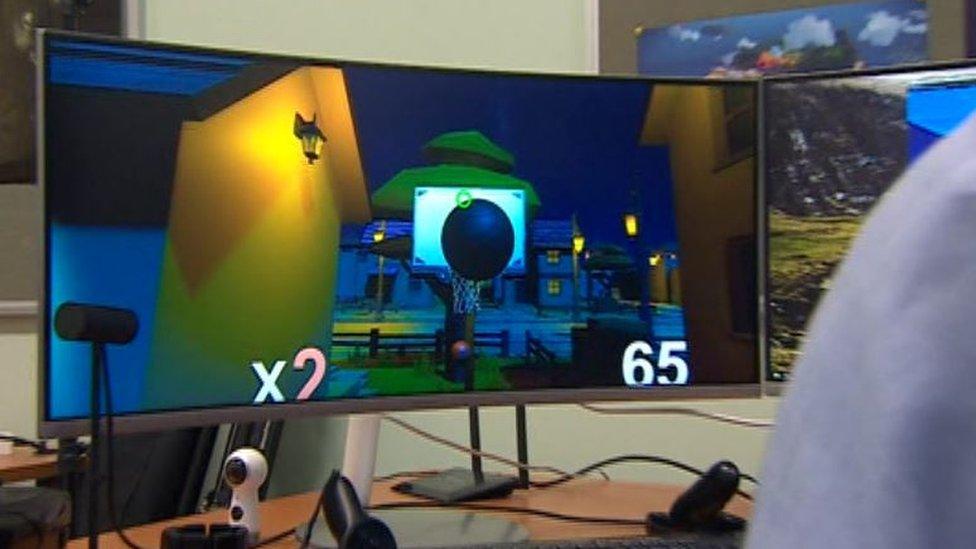Virtual reality game helps ease pain for burns victims
- Published
Virtual reality gaming is being used to help burns victims deal with pain
Virtual reality gaming has been used to help burns victims deal with agonising pain endured during medical treatment.
Patients in Sheffield who wore a headset to immerse themselves in a virtual basketball game said they felt less pain when having bandages changed.
Megan Moxon, 19, said it took her mind off the "excruciating pain".
It is the first trial of its kind in England, with researchers hoping the technique will be rolled out to hospitals over the next few years.
The trial, led by Sheffield Hallam University, involved some patients being treated on the burns unit at the city's Northern General Hospital.

How does it work?
Our attentional resources are limited - it's tricky to pay attention to lots of things at once, writes Dr Chris Graham, clinical psychologist and research fellow at the University of Leeds.
Because pain is important for keeping us alive, it's no surprise that acute pain grabs our attention.
Medical procedures for burn injury often come along with lots of pain. The present study appears to have used VR to occupy much of a participant's attentional resources. This may leave less attention free for the processing of pain, thereby reducing its severity.

Nurses said the pain of cleaning and dressing wounds could be so intense that many patients could not tolerate it for long.
They said even the thought of the agony from treatment could trigger stress and anxiety.

The specially developed game involves patients moving their heads when wearing the headset to trigger movement in the virtual world
Senior sister Michelle Morris said: "One particular patient did have a lot of anxiety and didn't want us to clean or touch the wound at all.
"With the VR he almost forgot the wound was there and he let us do pretty much what we wanted."
Ms Moxon was left with thigh injuries when a bowl filled with boiling water fell onto her lap.
She said: "There's a specific part of my leg that's been really tender and sore but with the VR the nurse would be able to prod it, poke it, put a bit of pressure on and I wouldn't feel a thing."
Falklands veteran Simon Weston, who suffered burns when his ship came under fire in 1982, said distraction therapy was "absolutely crucial".
"The nurses used to draw straws to see who would do my dressings," he added.
"I was supposed to have them changed twice a day and in the end because I kicked up such a fuss they'd only do them once a day.
"And that's what you're trying to get away from, somebody who is focusing totally on their pain."
- Published24 November 2017
